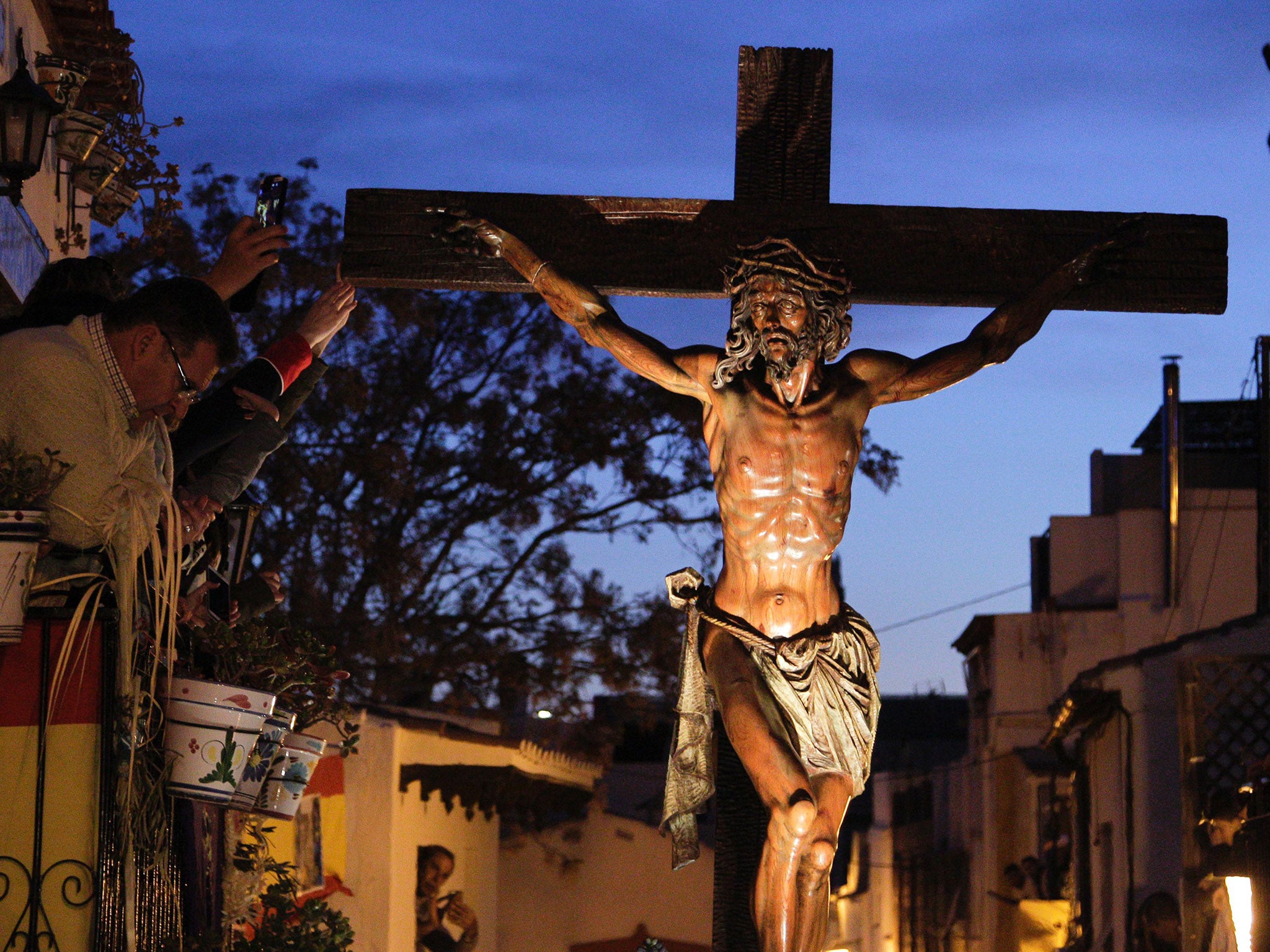I believe in God – and so do most Brits, whatever the latest surveys tell you
Admitting you believe in a higher power is like confessing that you slept with the postman, yet people continue to get married in church


Your support helps us to tell the story
From reproductive rights to climate change to Big Tech, The Independent is on the ground when the story is developing. Whether it's investigating the financials of Elon Musk's pro-Trump PAC or producing our latest documentary, 'The A Word', which shines a light on the American women fighting for reproductive rights, we know how important it is to parse out the facts from the messaging.
At such a critical moment in US history, we need reporters on the ground. Your donation allows us to keep sending journalists to speak to both sides of the story.
The Independent is trusted by Americans across the entire political spectrum. And unlike many other quality news outlets, we choose not to lock Americans out of our reporting and analysis with paywalls. We believe quality journalism should be available to everyone, paid for by those who can afford it.
Your support makes all the difference.Want to shock people these days? Tell them you believe in God.
For the first time, non-believers are in the majority. In England and Wales, a new study shows that only 43 per cent of the population admit they are Christians, while almost 50 per cent reckon they have no religious beliefs – double the number of five years ago.
These findings have upset many, who see it as a sign our society is becoming ever more shallow and materialistic, but it doesn’t necessarily follow these ‘non-believers’ are life-long atheists.
As we confront death, our views may change and become more fluid. In the final weeks of his life, David Bowie said “you don’t get any atheists on the battlefield”. Other religions account for just 7.7 per cent of the population, in spite of the huge amount of coverage given to Islam.
I believe in the power of prayer and have done since childhood, attending an Anglican primary and secondary school in a working class area where Catholics had their own, parallel system.
These days, people are astonished to discover I believe in God. It’s like admitting you have a huge boil on your bum or you slept with the postman last Christmas.
I find the Anglican Church is a source of never-ending despair, with its lacklustre attitude to promoting women, embracing sexual equality and gay marriage, years of ignoring historic sex abuse, and so on.
Surely the point of belief is that it should be something that’s second nature, something that you turn to without thinking, like a pair of much-loved shoes or an old jacket. My belief doesn’t rely on attending church or agreeing with Archbishops, or any kind of communal activity or Synod-approved ruling.
I can’t understand why the church doesn’t use its property portfolio and vast wealth to support the poor, instead of always asking everyone else to cough up. Churches must be the most underused property in Britain; they should be turned into affordable housing, for starters.
Most Brits are secret believers: they have faith but just don’t want to admit it.
Much has been written about the “cult of the self” and some experts say taking endless selfies is causing us untold harm. Have we replaced God with self-worship?
I am not that cynical. When there is a human disaster, ordinary people rise up to help, and donate to charity. In spite of all the hype, the popularity of Kim Kardashian doesn’t mean we’re turned into a shallow society.
The BBC aired a controversial documentary last week, Last Whites of the East End, filmed in the London Borough of Newham, where the British-born population has fallen by 50 per cent over 15 years and the minority ethnic community makes up 73 per cent of the population.
Cockneys filmed were whingeing about the loss of the “good old days”, with many opting to move further east into Essex, where they claimed Christians weren’t outnumbered in the schools and on the housing estates.
The irony is these former Londoners get married and have their babies christened in church. They are just as connected to their beliefs as the ethnic communities they are fleeing.
If only they practised true Christianity, which means reaching out to others.
Join our commenting forum
Join thought-provoking conversations, follow other Independent readers and see their replies
Comments